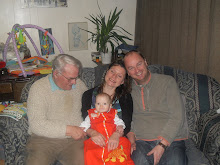Unusual Encounters Andrew Bebb
Reading an editorial somewhere on ‘Respect difference, teach unity’ has set me thinking. Perhaps the way forward is not so much elaborately constructed formal self-conscious meetings. Maybe a more informal and unexpected encounter is more effective. It is often readily available. We do not often have to look too far to come across it.
I had been attending a Theology Conference at Ushaw College a few miles outside Durham. It was an enriching experience and also quite a nostalgic one for me, since I spent 6 years in the fifties studying there. The train journeys have on two occasions surprisingly involved unusually memorable religious encounters.
If you are familiar with travel to the North East, you will know the anxieties engendered by having to change trains at York. You sit in the train regularly checking your watch hoping that you will be on time. York Station is quite huge, with platforms almost a mile long. Usually your train arrives at one end of an enormous platform. Your connection is then due to leave at the other end. This means a gallop of two hundred yards, down to the other end with only minutes available.
On one occasion, I was starting the usual gallop pulling my bag, when suddenly beside my side a young Buddhist monk appeared clad from head to foot in saffron robes. He shouted “Come on, I’ll help” and he ran beside me pulling my case. I got the connection. Ever since I have harboured a warm affection for Buddhism.
The other occasion happened quite recently.
This time, the train from Durham was on time and I was able to board the Liverpool train in comfort. Indeed there was a surfeit of unreserved seats. I chose a window seat and waited for the carriage to fill. To my surprise and indeed delight one of the last to board was a Rabbi. He entered a little uncertainly. I suppose it was because his personal appearance was a little unfamiliar to our eyes. He clearly belonged to the Orthodox tradition in Judaism He wore a long black thick overcoat and on his head above his zucchetto, a beautiful black round homburg-type hat. The most striking part of his appearance was his long straggly beard and hair. As he approached, I patted the aisle seat beside me and invited him to take a seat. Which he did, I hope a little gratefully. What followed was for us both a most delightful experience. I have never known the journey from Durham to Manchester pass so quickly.
We began by telling each other where we were coming from and why. He told me that he had been visiting Newcastle and was on his way back to join his community at Crumpsall in North Manchester. I explained that I had been attending a Theology Conference at Ushaw. He asked me what the subject of the Conference was. I told him it was on St. Paul, which interested him. He, he told me, had been visiting the Rabbinate in Newcastle to speak to the students. He had written a book to help with their studies and was leading them through it. He asked me since I was a theologian whether I was a priest. I told him that I was but that I had been allowed to resign the active ministry in order to raise a family. He knew that Catholic priests were not normally permitted to marry and to continue in the ministry. He told me that he had 15 children so I told him that I had 9. Quite a lot between us!! We didn’t go into the issue of grandchildren in case the discussion became competitive!
He told me that his ancestors had come to England from the Ukraine at the beginning of the 20th. Century fleeing from persecution. He was grateful for the toleration which English people had shown to his community over the years.
From that point on, our conversation focussed on the scenery outside the window of the train. He was full of questions. He wished to know the names of all the Yorkshire Rivers. Fortunately I had learned them as a rhyme as a little boy at school. He was also very interested in the canal system in the North of England., especially the Leeds and Liverpool Canal. I told him off once for asking a question of which I had already given him the answer, He laughed and scolded himself. His other area of interest was the purpose of the large disused buildings in the valleys. I explained that they had been woollen mills and in Lancashire, cotton mills. He wanted to know something of the history of the woollen and cotton trades. It made me realise that much of his experience of the wider history of the North of England had been from within his own local community. He became a delightful student and the miles outside the window passed away so quickly. Soon we were approaching his destination and the time to part. He disappeared for a while and returned with a bottle of Coke and two plastic glasses. He intended to cement our newly found friendship with a toast. Which we did. As we touched our glasses, he said “cheers” and I replied “shalom”.
I was very sorry to see him go. As he left he shouted back from the open door:” Goodbye, Andrew”. I shouted back: “Goodbye, Abrahim”
A number of our fellow passengers looked a little puzzled.
Friday, 25 June 2010
Subscribe to:
Post Comments (Atom)

No comments:
Post a Comment